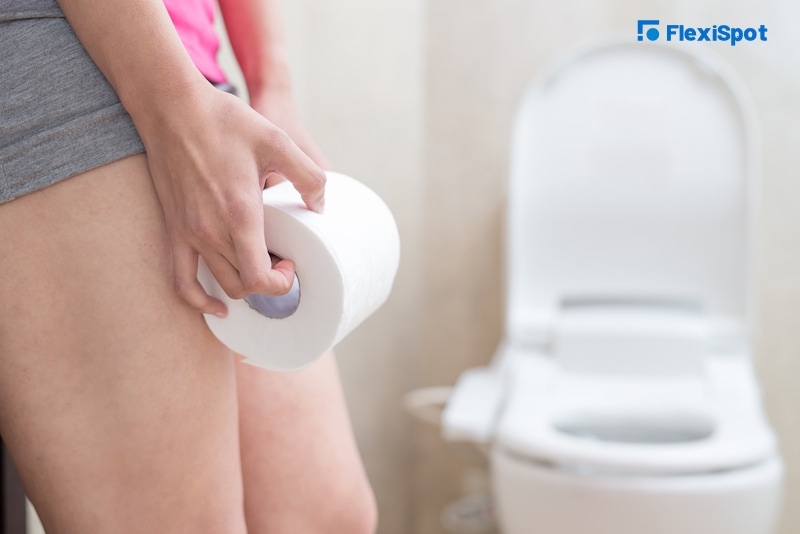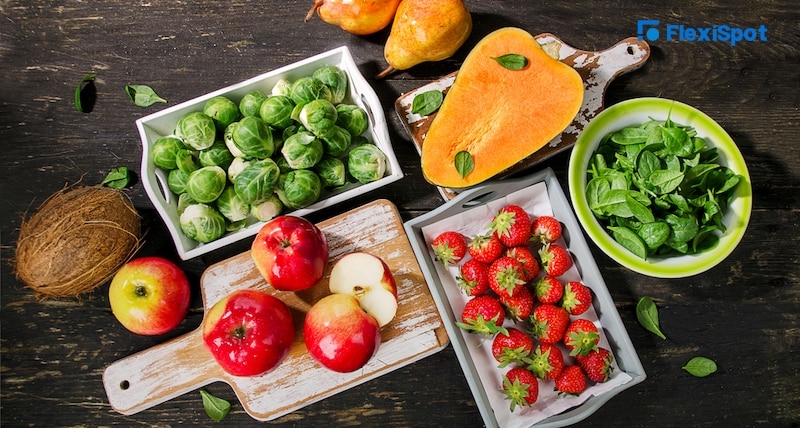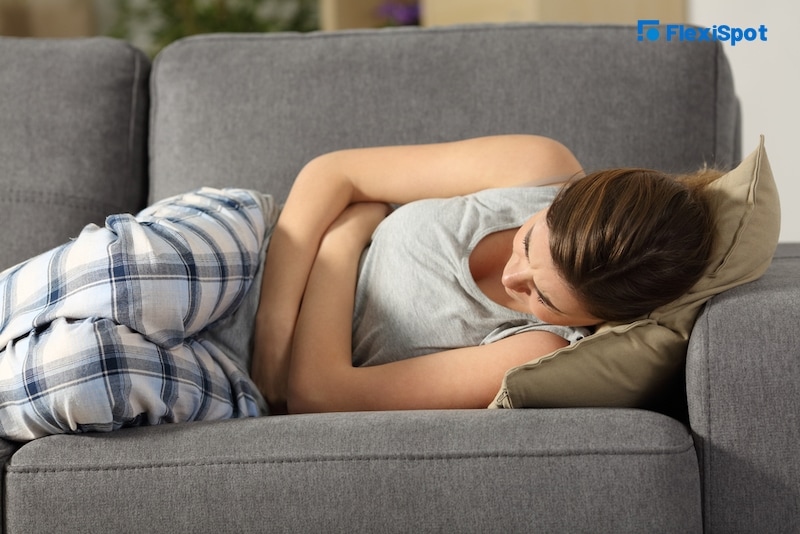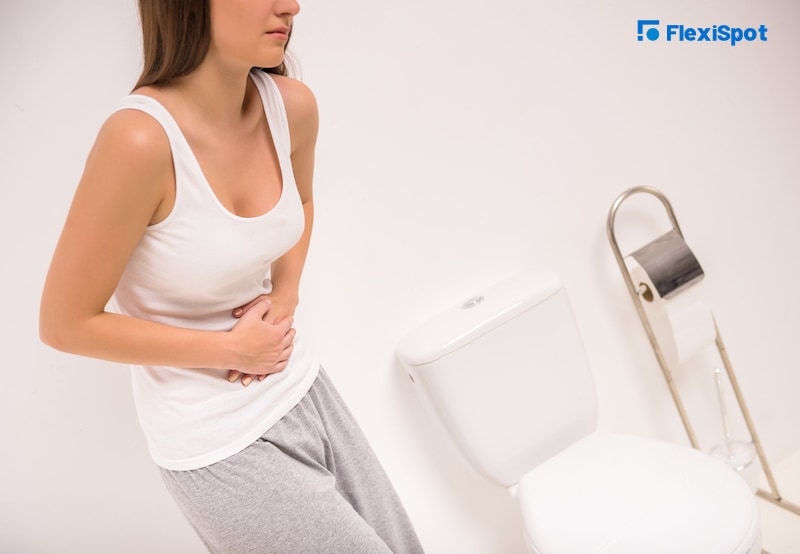Did you know that constipation is the most common gastrointestinal complaint in the United States? It’s estimated that around 16 out of 100 adult Americans are affected by it, and the numbers are only going up. To put this into perspective, there are nearly 2.5 million hospital visits relating to constipation every year, with most of the patients being women.
That being said, nearly everyone will experience constipation at some point in their life. While it is not a life-threatening condition, constipation can definitely make life uncomfortable.
It is a temporary problem that can be remedied for many with dietary changes and increased water intake. However, for others, constipation can be a chronic condition that requires more aggressive treatment.
While there are many treatments available for constipation, prevention is always better than cure. In this blog post, we will explore the causes of constipation and provide tips for preventing and treating it.
What is Constipation, and What Are the Symptoms?
Constipation is a common digestive problem in which a person has difficulty passing stools and doesn't have a regular bowel movement pattern (having fewer than three bowel movements in a week). It is characterized by hard, dry stool that is difficult to pass.
Symptoms include
- Infrequent Bowel Movements
- Hard Stools
- Straining During Bowel Movements
- Abdominal Pain
- Bloating and Gas.
- A Feeling of Incomplete Evacuation
While occasional bouts of constipation are common and generally not a cause for concern, chronic constipation can be both uncomfortable and disruptive to your daily life.
If not treated appropriately, it can sometimes lead to more serious problems like fecal impaction, anal fissures, hemorrhoids, and intestinal obstructions. If you are experiencing symptoms of constipation, it is important to see your doctor to rule out any underlying causes. Don't suffer in silence.
Are Ladies at Higher Risk of Constipation?
While both men and women can suffer from constipation, there is some evidence that ladies are more likely to experience this digestive issue. Hormonal changes during menstruation, pregnancy and menopause can all interfere with intestinal function and make constipation more likely. Additionally, women typically have a slower transit time through the intestines, which increases the likelihood of constipation. Additionally, many medications taken by women – such as iron supplements and oral contraceptives – can also cause constipation.
What are the Causes of Constipation
One of the most important things to understand about constipation is that it has many possible causes. For some people, a diet low in fiber is to blame, while others may not be drinking enough fluids or getting enough exercise. In some cases, medications can contribute to constipation, as can certain medical conditions.
But most instances of constipation boil down to two main factors: a lack of fiber in the diet and a lack of water. Fiber works by helping to add bulk to the stool, which helps move food through the digestive tract more efficiently. Fiber also absorbs water, which helps to keep the stool soft and easy to pass.
Water is necessary for softening the stool and keeping the intestines hydrated. It also prevents your bowels from becoming dried out and hard. Thus having an imbalance in these two components will definitely have an impact on your bowel movement.
Other potential causes of constipation include:
- Extreme emotional stress, anxiety, or depression
- Certain medications - including painkillers, iron supplements, antidepressants, and antacids
- Underlying medical conditions, e.g., irritable bowel syndrome and thyroid disorders.
- Eating foods that are high in fat and low in carbohydrates
- Milk and other dairy products
- Lack of exercise and sitting too much
- Holding the urge to poop
- Abuse of laxatives
How Can You Prevent Constipation?
There are a few things you can do in order to prevent constipation:
Eat Plenty of Fiber-rich Foods like Fruits, Vegetables, and Whole Grains
A high-fiber diet is often recommended as a natural way to prevent or relieve constipation. Fiber is a type of carbohydrate that the body cannot digest, so it moves through the digestive system relatively unchanged. As it travels through the intestines, fiber helps to bulk up stool and promotes regular bowel movements.
There are two types of fiber: soluble and insoluble. Soluble fiber dissolves in water and forms a gel-like substance, which helps to keep stool soft and easy to pass. Insoluble fiber does not dissolve in water and helps add bulk to stool, making it easier to pass. Both types of fiber are important for preventing constipation.
Adults' recommended daily fiber intake is 20-35 grams (equivalent to 100g of uncooked whole grain, half a cup of spinach/kales, and 200g of broccoli), but many people fall short of this goal. Fortunately, there are many easy ways to increase your fiber intake by incorporating various foods into your diet. Some of the best sources of fiber include
Whole grains and pulses: oats, quinoa, brown rice, green beans, chickpeas, kidney beans, black beans
Wheat bran
Nuts: almonds, walnuts, pistachios
Vegetables: broccoli, cauliflower, cabbage, spinach, brussels sprouts, artichokes, asparagus, kale.
Fruits: apples, bananas, berries, pears, mangoes, papayas, pineapple, raspberries, strawberries
Psyllium husk or flaxseed meal are both excellent sources of soluble fiber-try adding a teaspoon to your morning smoothie or oatmeal.
There are also a few different foods that you might want to avoid if you're prone to constipation. In general, things that are high in fat and low in fiber can make it harder for your body to digest and may lead to constipation.
Foods like high-fat dairy products, e.g., butter, cream, and cheese; red meat; greasy or fried foods; and foods that are high in refined carbohydrates are all things you might want to limit.
It's really important to pay attention to your body and figure out which particular foods tend to make your constipation worse–you can even have a food diary for this purpose.
How do you treat constipation when it occurs, and are there any home remedies that can help ease the condition naturally?
Drink Plenty of Water and Other Fluids Each Day
While there is no surefire way to prevent constipation, drinking plenty of water is one simple step that can help. This is supported by a number of studies showing a clear link between dehydration and constipation. When the body is dehydrated, the colon absorbs more water from the stool, making it harder and drier. As a result, people who are dehydrated are more likely to experience constipation.
But how much water should you be drinking? That depends on a few individual factors, but generally speaking, most adults need to drink at least 11.5 cups of fluid per day for women and about 15.5 cups of fluid per day for men. That translates to 2.7 and 3.7 liters, respectively.
But, sometimes, you may need even more than that, depending on your health or lifestyle. If you're pregnant, breastfeeding, have diarrhea, are vomiting, or are sweating a lot, you'll need to drink more water to compensate for the fluids lost.
The bottom line is that water is essential for proper bowel function and should be part of your daily routine if you want to avoid constipation.
There are also a few drinks that you should avoid if you are struggling with constipation. Caffeinated beverages, sugary drinks, and alcohol can all contribute to dehydration, making constipation worse. If you are struggling with constipation, it is best to stick to water and other unsweetened beverages, e.g., natural juice, and soups
Avoid Inactivity and Sitting Too Much! (Exercise Regularly and Move More)
A sedentary lifestyle is a known risk factor for constipation. Studies have found that people who are inactive and sit more are more likely to suffer from this digestive disorder. There are several possible explanations for this link. For one, physical activity helps to promote bowel movements by improving bowel activity in the large intestine (through reduction of colonic transit time and hormonal change).
In addition, sitting down can cause you to compress your abdomen and reduce general muscle activity, which means less movement overall. This decreased physical effort may lead to food buildup in the digestive system and may lead to gastronomical issues such as heartburn or constipation.
That explains why most people in hospitals tend to have cases of constipation–they are simply not active enough.
If you are sedentary, there are a few things you can do to help reduce your risk of constipation:
Exercise
Exercise is a great way to keep the digestive system moving and prevent constipation. The recommended amount of exercise for adults is at least 150 minutes of moderate aerobic exercise per week or 75 minutes of vigorous aerobic exercise. This works out to about 20-30 minutes of exercise per day.
This can be broken up into smaller portions throughout the day, such as 10 minutes in the morning, 10 minutes at lunch, and 10 minutes in the evening.
There are many different types of exercises that can help to prevent constipation, but some of the best options include walking, jogging, biking, and swimming. Regular exercise will not only help to prevent constipation but will also promote overall health and wellness.
Reduce Sedentary Life by Adding a Sit-Stand Desk to Your Setup
For people who have sedentary jobs, it is difficult to find the time to exercise regularly. Although some employers are now encouraging their employees to take breaks and move around throughout the day, many workers still spend the majority of their time sitting down.
It's no secret that sitting all day is bad for your health. In addition to increasing your risk of obesity and heart disease, research has also linked prolonged inactivity to constipation. This is because when you sit, the muscles in your intestines and colon compress and crimp, making the movement of stools much harder. As a result, food and waste can build up in your system and become difficult to pass.
One way to combat the constipation-causing effects of sitting is to switch to a sit-stand desk. Standing for some part of the day has been shown to improve circulation and help the digestive system work more efficiently (increases muscle activity, which can help to move food through your digestive system and stimulate bowel movement).
Although standing desks are not a substitute for regular exercise, they can help to improve blood circulation and reduce the risk of health problems such as constipation, obesity, and heart disease. In addition, standing desks can also provide a much-needed energy boost for workers who often feel tired at the end of the day.
Go to the Bathroom When You Need to go - Don't Hold it in!
That may seem like obvious advice, but many people try to hold it in for various reasons. Maybe they're at work and don't want to take a break, or they're out in public and don't want to use a dirty restroom.
When you feel the urge to go, your body is trying to tell you something.
Whatever the reason, holding it in can actually make constipation worse. When you delay going to the bathroom, your body reabsorbs more water from the stool, making it harder and drier. This can cause difficulty passing stool and may lead to painful cramping. So next time you feel the urge, try to find a clean and convenient place to go.
Ways to Treat and Relieve Constipation
There are a number of different ways to treat constipation, and the most effective approach depends on the underlying cause.
For example, if constipation is due to a lack of fiber in the diet, then increasing fiber intake through diet or supplements can help to alleviate the problem. You can try shirataki noodles or take a glucomannan supplement. Shirataki noodles are made from konjac yam, which contains glucomannan. Glucomannan is a water-soluble dietary fiber that expands in your stomach, making you feel full and helping to relieve constipation.
If your constipation is due to a sedentary lifestyle, then adding more physical activity to your daily routine can be helpful.
If dehydration is the cause, then drinking more fluids throughout the day will help. And if you're taking medications that tend to cause constipation (such as certain painkillers or antidepressants), talk to your doctor about changing your prescription.
In some cases, constipation may be due to a more serious underlying medical condition, such as an obstruction in the digestive tract. In these cases, medical treatment may be necessary. Common treatments include
Prescription of a probiotic supplements. These supplements can help promote a healthy gut environment by replenishing the good bacteria that may be lost due to antibiotic use or other factors. Probiotics help relieve constipation related to certain medications, pregnancy, and gastronomical issues, e.g., Irritable bowel syndrome.
Stool softeners are another effective treatment for constipation. These medications work by allowing moisture and oil to penetrate the stool, making it softer and easier to pass.
Laxatives are another option for treating constipation. These medications work by stimulating the bowel and helping to move the stool through the intestines. However, laxatives should only be used short-term as they can cause dependency and other side effects.
Note: More severe cases may require surgery.
Constipation is no fun for Anyone
Constipation is a common problem that many people will experience at some point in their lives. However, there are some simple steps you can take to help prevent it from happening in the first place. Remember that prevention is better than cure, so start making some changes to your lifestyle today.
Eating a high-fiber diet, drinking plenty of fluids, avoiding sedentary lifestyles, and staying active are all effective methods for preventing constipation.
Sedentary living and inactivity have been linked to higher risks of constipation, so it is advisable to exercise regularly and avoid a sedentary lifestyle. For people who have busy schedules and don't have enough time to go to the gym, incorporating a standing desk into your work setup may be a good start. Standing and being active have been shown to decrease the risk of constipation.
By following these simple tips, you can help prevent constipation and keep your digestive system healthy. And if you find that you are still struggling with constipation even after trying all of these methods, be sure to consult with your doctor for further advice and treatment.







